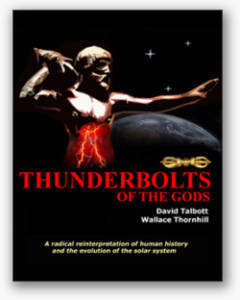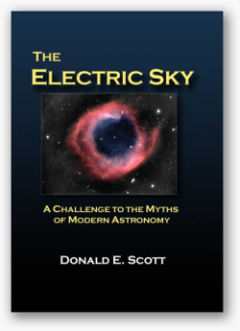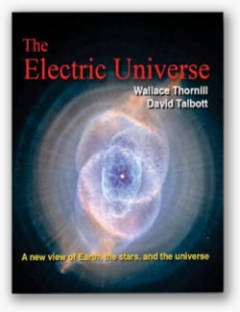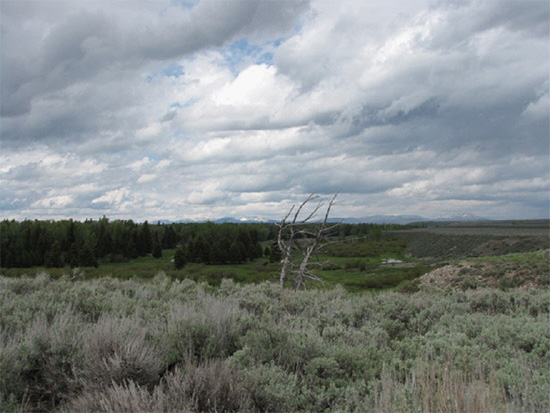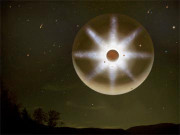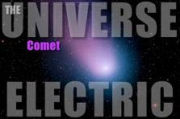Can humanity change Earth's
environment? Or, are we too small?
In ancient Carthage children were
sacrificed to appease the gods. The
Carthaginians thought that their
actions could control the gods of
thunder, drought, earthquakes and
volcanoes. Our modern god, science,
is imbued with powers that humans
believe can make us masters of our
planet. Is this a mere childish
arrogance similar to the
Carthaginians, or do we possess the
power to control or modify Earth's
environment?
There are two camps. Camp one is
led by the IPCC (International Panel
on Climate Control) with its link to
the United Nations. They are thought
of as a prestigious, flawless body
representing highly qualified
scientists and logical, precise
government concern. Then Michael
Mann's 'hockey stick' scandal
revealed their inept duplicity. Then
came modifications, the withholding
and deleting of research data by
Professor Jones and Dr. Kelly from
the University of East Anglia. Grave
doubts were voiced over the IPCC's
integrity.
The second climate camp is the
ever growing body of 'climate
warming' skeptics, also represented
by many eminent scientists such as
Professor Ian Plimer. They claim
that the IPCC has made an industry
out of nonsense, and that this steam
roller with it's so called 'proven
science' has made dogma out of dodgy
beliefs. Upon examination, they
claim that the 'proofs' from camp
one are based on 'fudged' results.
Water vapour is said to be a more
effective green house driver than
carbon dioxide.
Lord Monckton and
Joanne Nova are
representative of this viewpoint.
The essential dogma from camp one
is that human carbon emissions cause
climate change. Like most opposing
forces there is truth in both camps.
However, the danger is that in the
name of 'better safe than sorry' we
may become committed to a farce.
To be sure, most politicians,
more intent on votes than truth, are
afraid to go against the 'global
warming' camp. Global warming is now
a huge industry with many research
projects. Australia's Rob Gell, in a
recent presentation at the 'Kananook
Creek Association' day, urged
citizens to become part of this
burgeoning industry.
Away from the glitz and political
correctness, what does control our
weather? The answer literally stares
us in the face: the Sun! Anyone who
has seen a Coronal Mass ejection
(CME) cannot help being awed by its
immense electromagnetic power.
Together with solar flares, their
explosive discharges dwarf any
pathetically puny human efforts. A
million coal burning power stations
cannot match a solar flare's
thunderous domination.
Somehow, both phenomena are tied
to the sunspot cycle. NASA's STEREO
satellites aim to find out why. No
one knows or understands the
specific mechanisms. Radiation and
charged particles blast into space.
Earth's magnetosphere lights up with
aurorae; cyclones form; volcanoes
erupt with huge lightning displays
above their peaks, while
earthquakes, with their attendant
electrical discharges, devastate
cities and generate tsunamis.
Snow storms, such as the recent
examples in the United States and
Europe, as well as flooding in
Australia and Pakistan, along with
volcanoes in Iceland, Japan and
Indonesia could all be connected.
There is a strong contention that
these whims of nature are linked.
The common thread is the Sun's
electrical connection to Earth's
magnetosphere.
Meanwhile, Dr. Henrik Svensmark
has proposed that cosmic rays are
the ultimate driver of weather. In
essence, charged particles create
low level cloud cover that modifies
temperature and precipitation. This,
not carbon dioxide, correlates with
Earth's weather. Svensmark also
postulates that the Sun is driven by
variable chaotic forces from outside
the Solar System. And recent
research has found unexpected
sources of cosmic rays close to the
Sun, which conform to Alfvén's
heliospheric electric circuit model
of the Sun. These factors combine to
affect the Earth's climate.
So, decide for yourself but do
not accept the dogma from either
camp. Investigate. The politically
correct 'proof' of our time might
prove to be bunk in another
generation. After all, we are
victims of fashion.
It is unfortunate that the
argument against carbon dioxide
emissions is tied up with our
environmental concerns. Clearly, we
must protect our habitat, but
authentic modern concerns must not
be confused with contentious and
dogmatic arguments.
Peter Mungo Jupp
